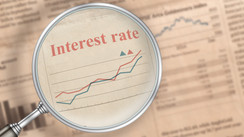Falling Oil Prices Amidst Middle East Tensions
Oil prices exhibited a declining trend on the last trading day of the week, reflecting eased tensions over supplies in the Middle East due to the ongoing conflict between Israel and Hamas, and the assumed halt of the US Federal Reserve's interest rate hikes. Brent crude futures were noted at $84.89 a barrel, while West Texas Intermediate crude was at $80.51 a barrel, marking a drop surpassing 6% on a weekly basis. Even with Hezbollah leader Sayyed Hassan Nasrallah cautioning about potential conflict escalation at the Israel-Lebanon border, the markets remained resilient. John Kilduff from Again Capital LLC suggested that this conflict may not significantly perturb supply or demand.
Impacts of Global Economic Trends
Slower-than-projected job growth in the US in October, coupled with wage inflation cooling, hints towards milder labor market conditions and lessens the urgency for additional Fed rate hikes. Concurrently, the Bank of England upheld its 15-year high rates, fostering some degree of risk appetite. However, less-than-expected expansion was observed in China's service activity in October, as sales growth touched a 10-month low and stagnation was seen in employment owing to weakened business confidence.
South Africa's Fuel Price Forecast
Turning our attention to South Africa, predictions by the World Bank suggest that barring geo-political upheavals, fuel prices are likely to remain unchanged over the holiday period. This forecast hinges on the global average oil price for Q4 being $90 a barrel, fed by a decrease in Brent crude prices from $91.86 to $88.72 per barrel owing to slowdown in global economic growth and rise in production from non-OPEC+ producers.
Ramifications for Consumers
Consumers are likely to enjoy certain benefits from the marginal R1.78 per liter petrol price reduction triggered by a rise in global oil stocks and the removal of US sanctions on Venezuela. This includes a potential positive effect on the logistics supply chain and retail pricing. However, many deem this cut insufficient, given the current rate of R23.90 per liter for 95 unleaded petrol and R23.44 for 93 unleaded petrol.
With the Absa Purchasing Managers' Index at 45.4 index points for October, there is an indication of a slackening demand for local products due to elevated food and fuel prices. The AA predicts the dip in fuel price will endure during the holiday season. This coincides with an expected price break in July 2023 and Stats SA figures reporting 8.1% food inflation, along with a R5.71 diesel price hike since June and a current Brent crude oil price standing at $87.25.
In the wake of such trends, Road Freight Association CEO Gavin Kelly pointed out a potential deferred impact on logistics due to warehouse reserves, while Debt Rescue CEO Neil Roets underscored that rising living costs were leading to financial instability. UASA spokesperson Abigail Moyo encouraged judicious spending given the high fuel prices' impact on travel and imminent education expenses.
As South Africans grapple with escalating costs of living owing to increasing energy and food prices, constant interest rate hikes, and enduring petrol price rises, the anticipated stability in fuel prices could bring momentary respite for consumers. It is advised to plan travel wisely during the holiday season in view of impending financial strain in the coming year.





